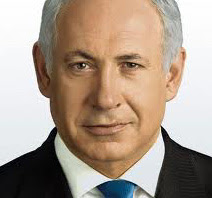Good mates: Burlesquoni and Gaddafi (with Amazonian Guard).
Reports are coming out of Libya that the city of Benghazi is under the control of protesters seeking to overthrow Muammar Gaddafi, the vicious – some say deranged – ruler of that country. Surrounded by his 40-strong Amazonian Guard of supposed virgins and attended by his voluptuous blonde Ukrainian personal nurse, outfitted like a mediaeval potentate, Gaddafi is a figure of fun to many in the West. Yet his risible posturings and pronouncements should not blind us to the fact that he has, for 42 years, crushed all dissent in Libya with utter brutality. The death toll in Libya grows daily; the dead join their fellow Egyptian and Tunisian martyrs for whom the incentives of freedom and justice were more powerful than fear for their lives.
Elsewhere in the Middle East and North Africa the seeds of revolution against oppression are stirring. During their years of servitude under whichever dictator, king or unelected president was in power the people had an example, an inspiration, to which they could turn. For 43 years the Palestinian people have resisted the military occupation of their land by a foreign invader. From armed resistance to peaceful protest – both crushed with ruthless and disproportionate force – the Palestinian people have been a beacon to their Arab neighbours, indeed, to freedom loving people worldwide.
Last Friday the villagers of Bil’in in the Occupied West Bank celebrated the sixth year of their struggle against the Apartheid Wall and Israeli Occupation. Every Friday for the past six years people from the village, together with Israeli and international supporters, have marched to the Wall, behind which lies half the village lands, confiscated for Israeli colony settlements. (So blatant is the land grab that three years ago even Israel’s High Court of Justice ruled that the path of the Wall is illegal and must be re-routed. To no avail – not one inch of land has been returned to its owners.) The marchers are met by brutal force – arrests, beatings, water cannon and teargas are the usual methods employed.
The village of Bil’in also has its martyrs. The most recent was 36 year old Jawaher Abu Rahma, who died of toxic teargas inhalation in January. She joined her brother Bassem, killed 18 months ago, shot at close range by an Israeli soldier while peacefully protesting. Across Occupied Palestine and in Gaza the killings go on but the thirst for freedom and justice is undiminished. The resistance continues, an example to the world.
* For Robert Fisk's report go to: http://www.independent.co.uk/opinion/commentators/fisk











